- 한국어
- English
- 日本語
- 中文
- العربية
- Español
- Français
- Deutsch
- Pусский
- Tiếng Việt
- Indonesian
By Honorary Reporter Nasim Gerami from Iran
Photos = Nasim Gerami
Kimchi is more than just a dish but a cultural icon and symbol of national pride and identity. Beyond its taste, the spicy condiment symbolizes a sense of community, family and heritage.
Nov. 22 is Kimchi Day and kimjang, the process and culture of making it, was placed in 2013 on the UNESCO list of Intangible Cultural Heritage of Humanity.
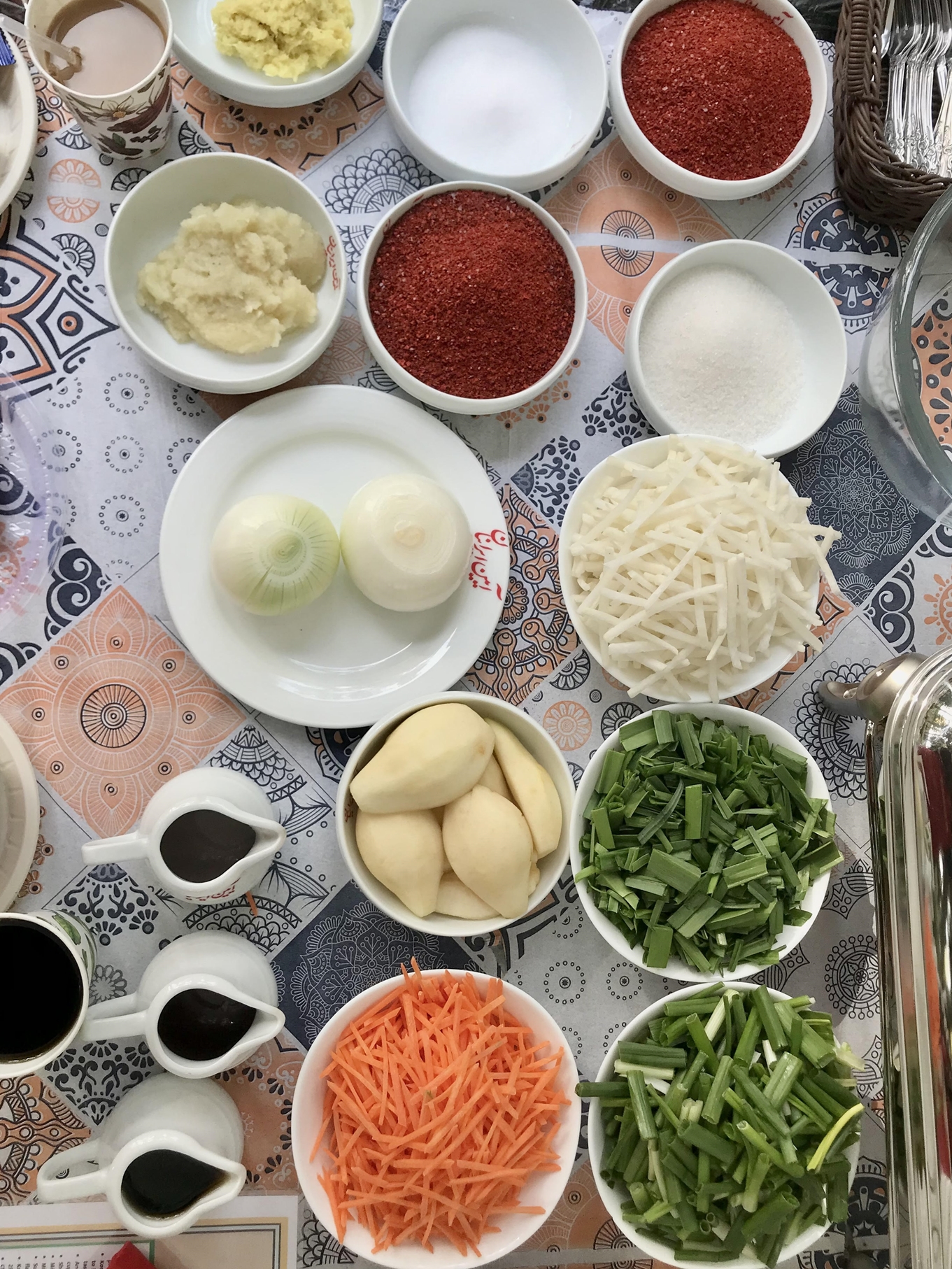
Kimchi ingredients used in kimjang
A Kimchi Day event on Oct. 31 was held at the residence of the Korean ambassador in Iran. As one of the invitees, I got an opportunity to experience and learn more about this dish. Entering the facility, I was greeted with the warm aroma of coffee and a delightful spread of snacks.
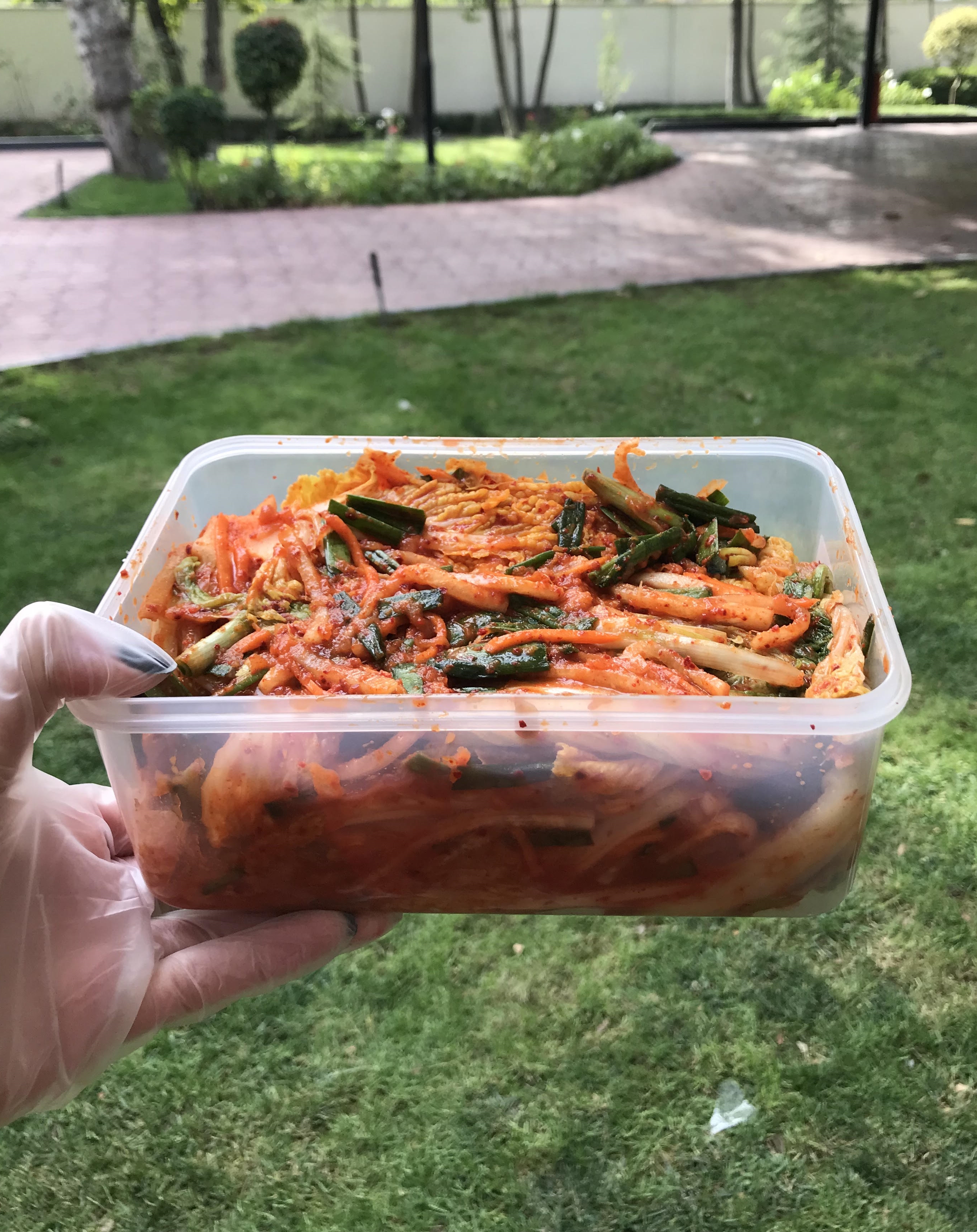
The kimchi I made
Kim Jong-oh, cultural attaché of the Korean Embassy in Tehran, opened the event with a speech on kimchi from its history to its importance in Korean culture. He said kimchi is a symbol of family and community, often a focal point of gatherings where families assemble to prepare and eat food.
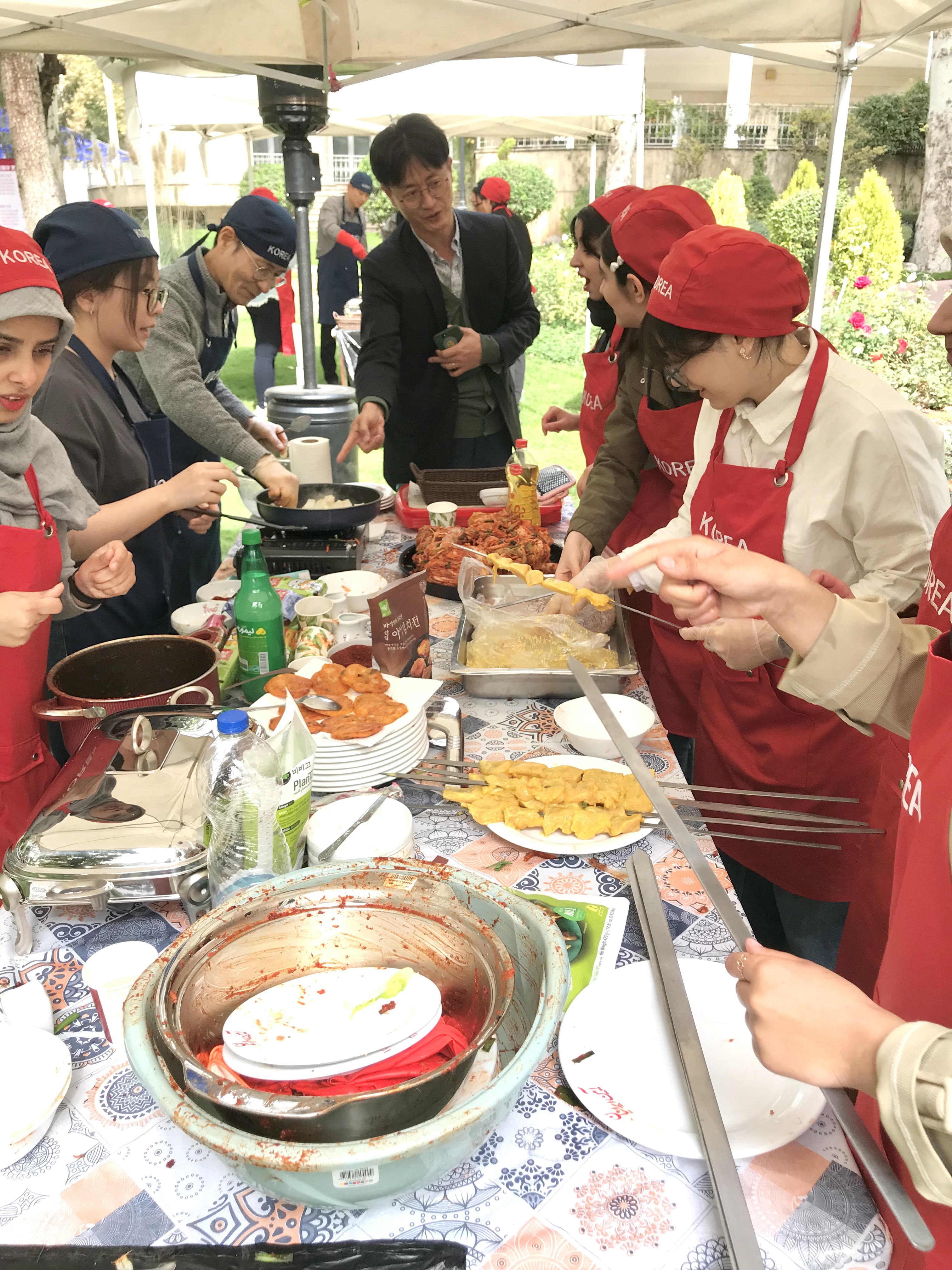
Kimchi preparation session
The highlight of the event was a kimchi-making workshop. Participants were divided into groups with specific tasks of preparing kimchi following a traditional recipe. While the Iranian participants focused on kimchi making, the Korean ones prepared two Iranian kababs: joojeh (chicken) and koobideh (ground beef).
This cultural exchange also saw the making of fried mandu (dumplings) and kimchi jeon (pancake).
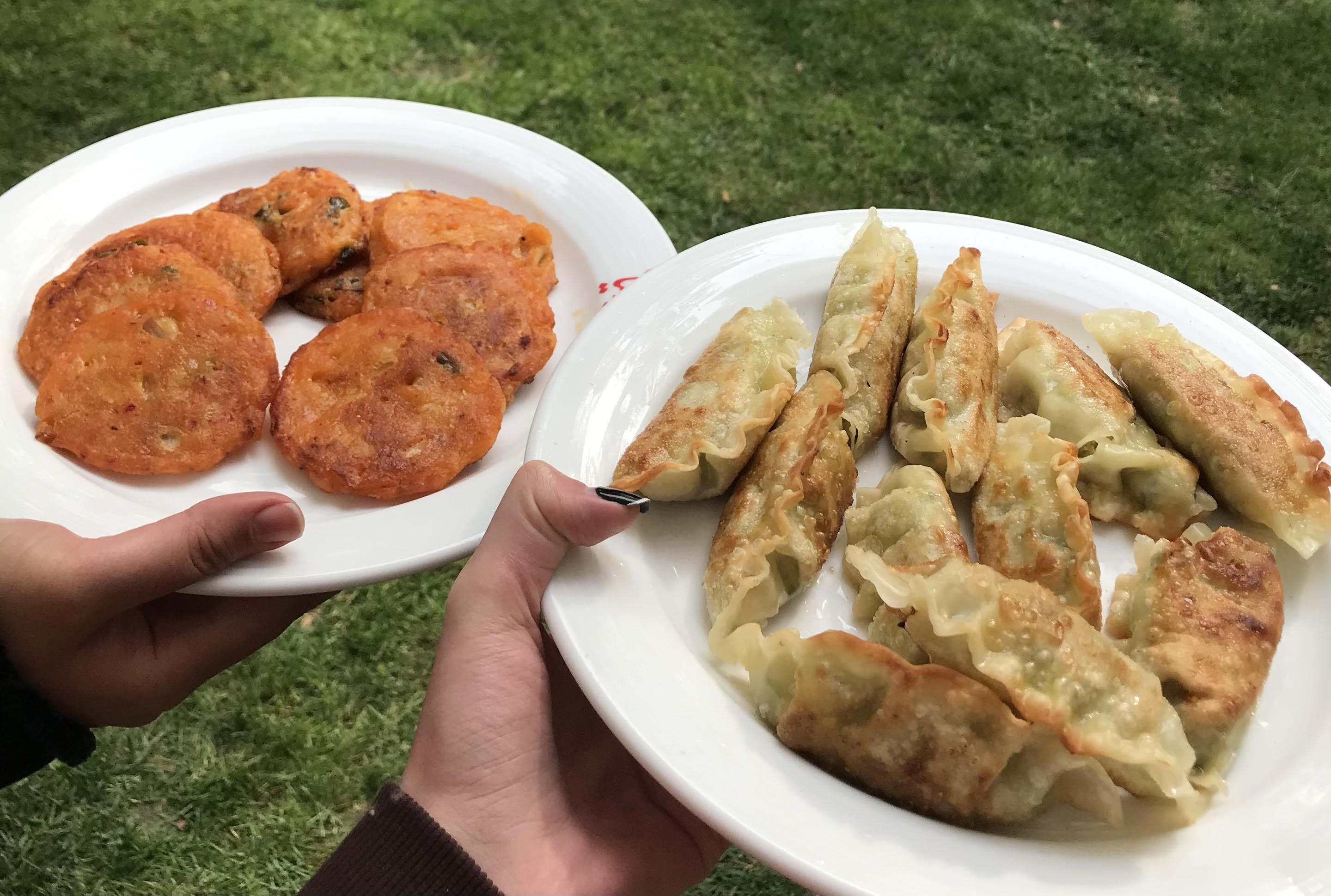
Kimchi jeon (left) and mandu (right)
Once the groups prepared their dishes, a Korean and an Iranian member from each group presented their creations to a Korean jury. The judges tasted each item and evaluated the flavor, texture and overall presentation. Three groups were crowned the winners and got prizes. Participants in a kimchi quiz also received prizes for correct answers.
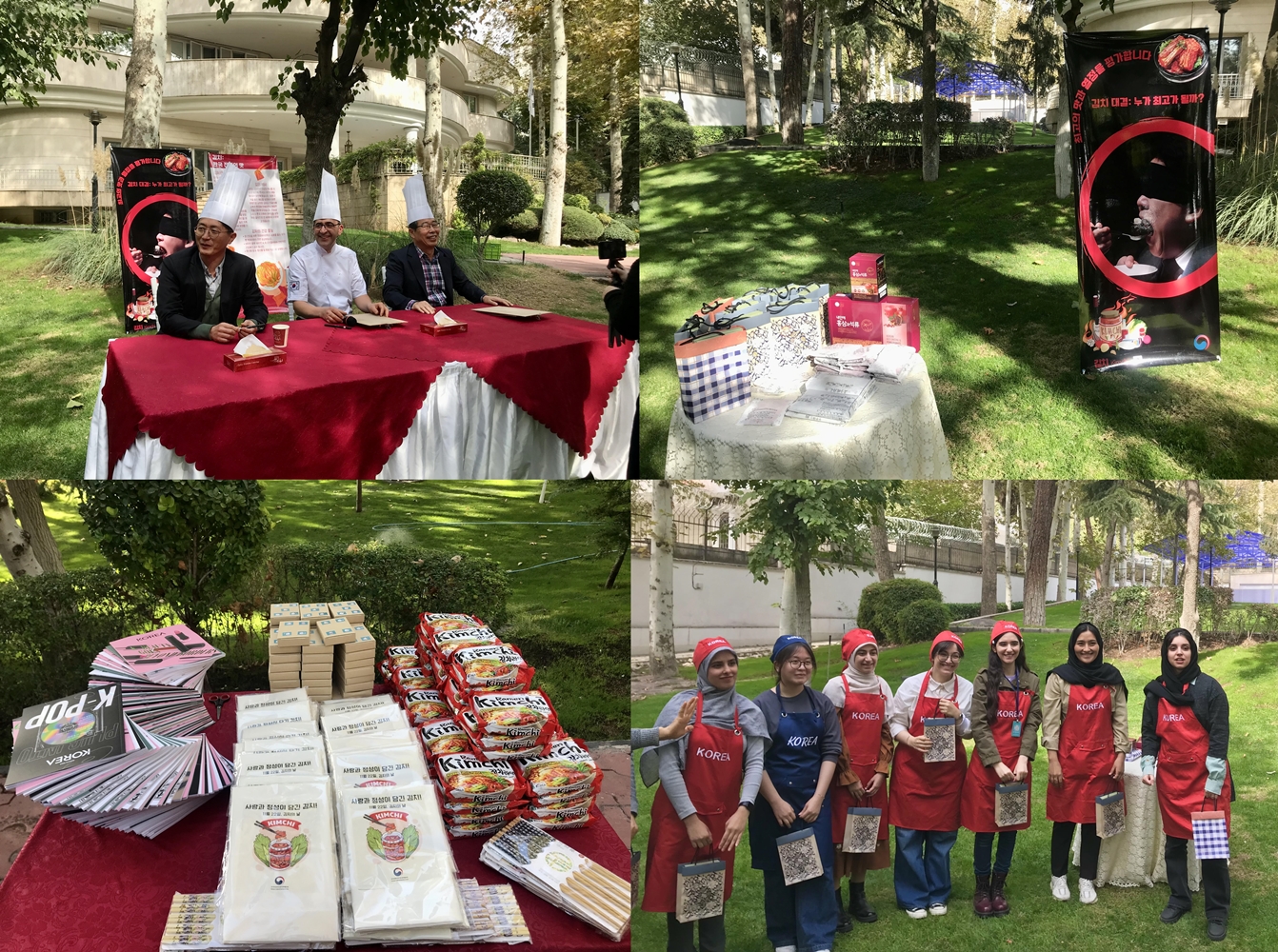
From left to right clockwise are the jury of the cooking contest; prizes for the winners; group photo of the winners; and kimchi-themed souvenirs.
As the event drew to a close, everyone received kimchi-themed souvenirs.
*This article is written by a Korea.net Honorary Reporter. Our group of Honorary Reporters are from all around the world, and they share with Korea.net their love and passion for all things Korean.
